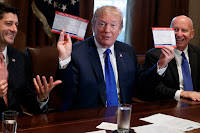According to Law360, a Manhattan federal judge sentenced English lawyer Michael Little to 20 months in prison on November 20, 2018 for helping the children of a deceased investor dodge taxes on their $14 million inheritance over a decade and for failing to pay his own taxes, ruling also that the former Royal Marine lied as he testified in his own defense.
U.S. District Judge P. Kevin Castel ordered Little, 68, to report to federal prison on Feb. 19. The sentence came in well below a request by prosecutors for a prison term in the range of 10 to 12 years as contemplated by official guidelines.
Judge Castel held off on the government’s request to order Little to pay roughly $4.4 million of restitution. Little contests the amount, and the matter will be briefed in coming weeks.
The judge did find that Little lied repeatedly on the witness stand during his trial earlier this year. A jury convicted Little on 19 criminal counts on April 10, finding:
- he obstructed the IRS,
- conspired with the family of deceased investor Harry Seggerman to file false tax returns from 2001 to 2010,
- failed to report foreign bank accounts, and
- failed to file his own taxes from 2005 to 2010.
Among other lies Little told the jury, he said he did not enter into a conspiracy with the Seggermans, prosecutors said in a court filing after the verdict. That contention was adopted by Judge Castel, who found Little also lied when he told the jury he had had no intention to break the laws of the U.S.
Prosecutor Christopher DiMase said Little’s conduct amounted to “an egregious pattern of lies and deception.”
Acting as his own counsel, as he did at trial, Little pushed back against many of the prosecution’s characterizations of his conduct during the lengthy sentencing hearing, which stretched over three hours.
“I am being blamed for their misdeeds,” Little said of the Seggerman family.
Four of Harry Seggerman’s children, all government cooperators who have admitted guilt, took the stand during the trial to testify against Little. That included Seggerman’s daughter Yvonne Seggerman, who told the jury that Little was present at a 2001 meeting at the Four Seasons hotel in Manhattan when a plan to avoid paying the IRS was crafted.
“They will pay for their crimes at the time of their sentencing,” Judge Castel said, calling both Little and the Seggerman family “tax cheats.”
Little had asked for a non-prison sentence, saying his legal saga has “broken” his health and telling Judge Castel that he suffered a heart attack on July 1. Little also said in court filings that he has reported all income to British tax authorities.
But the prosecution noted Tuesday that he did not do so until after he was criminally charged. Little was arrested in May 2012.
Little said at the end of Tuesday’s hearing that he intends to file an appeal.
The case is U.S. v. Little, case number 1:12-cr-00647, in the U.S. District Court for the Southern District of New York.
Read more at: Tax Times blog














